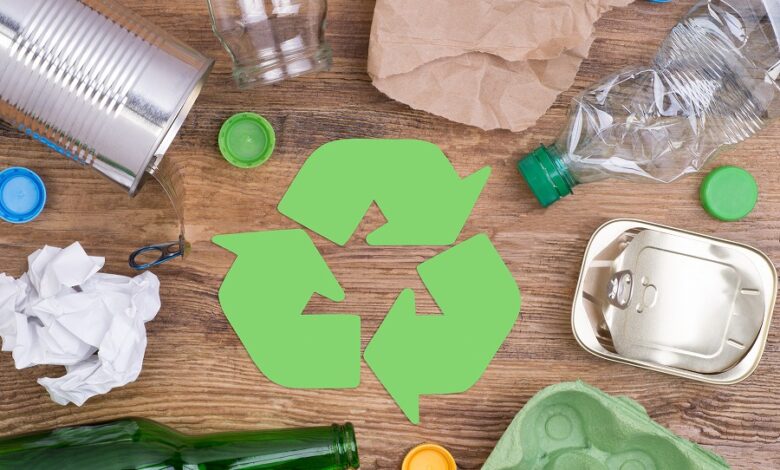How Does Recycling Impact Waste Management Efforts?

Introduction
Aimed at lowering the volume of waste transported to landfills, preserving natural resources, and thereby minimizing environmental effect, recycling is a vital component of contemporary waste management plans. Recycling presents a sustainable answer that may greatly affect waste management efforts as societies struggle with growing trash creation and resource depletion. The several aspects of recycling are investigated in this article together with its advantages, difficulties, and effect on waste management systems.
The Impact of Recycling on Waste Management Systems
Reduction in Landfill Use
Reducing the waste sent to landfills depends critically on recycling. Recycling lessens the demand for new landfills and helps to extend the lifetime of current dump sites by separating recyclable items from their respective locations. Hire small skip reduces the environmental effect related with landfill operations and has good consequences for land usage.
Enhanced Waste Diversion Strategies
Recycling helps to promote more general waste diversion plans by encouraging the separation of recyclables from other waste. Good recycling schemes inspire people and companies to separate their waste, therefore improving waste management and raising recycling rates.
Support for Circular Economy
A fundamental component of the circular economy—which seeks to establish a closed-loop system whereby resources are constantly recycled—is recycling. Communities may approach a more sustainable form of production and consumption by including recycling into waste management systems, therefore lowering waste and so preserving resources.
The Benefits of Recycling: Environmental and Economic Impacts
Environmental Benefits
Several important environmental benefits come from recycling:
- Recycling lessens the need for virgin resources by means of material reprocessing, therefore preserving natural resources such minerals, wood, and water.
- Recycling frequently calls for less energy than manufacturing new goods from raw resources. For instance, recycling aluminum saves up to 95% of the energy required to generate bauxite ore metal.
- Lowering of energy usage results in less greenhouse gas emissions, therefore mitigating climate change and lowering air pollution.
- Recycling helps to remove large volumes of waste from incinerators and landfills, therefore lowering the environmental effect of waste disposal.
Economic Benefits
Recycling also offers economic advantages:
- The recycling sector creates jobs in sales of recycled goods, collecting, sorting, and processing. It supports a substantial portion of the waste management industry’s employment.
- Recycling can help to minimize waste management expenses by lowering the frequency of waste collecting and disposal and thus saving the demand for landfill space.
- Recycled material can be sold to producers, thereby generating income that can help waste management projects and support more recycling efforts.
The Future of Recycling: Innovations and Trends
Technological Advancements
Technological developments should improve attempts at recycling. Advanced recycling procedures, artificial intelligence-driven waste management solutions, and automated sorting systems all seem to help to increase recycling program efficiency and efficacy. Higher recycling rates and better-quality recycled products follow from these technologies helping to solve problems with contamination and sorting.
Policy and Regulation
Supporting and growing recycling initiatives depends on well-written laws and rules. Policies encouraging recycling—such as mandated recycling programs, extended producer responsibility (EPR) systems, and incentives for recycling projects—are being adopted by governments and companies alike with increasing frequency. Advancing recycling initiatives and reaching sustainability targets will depend much on ongoing policy creation and execution.
Public Awareness and Education
Fostering a culture of recycling depends on increasing public knowledge about and instruction about recycling. Outreach efforts and educational initiatives may assist people understand the value of recycling, correct sorting techniques, and the advantages for the environment of recycling. Encouragement of public recycling projects could result in more involvement and better results.
Conclusion
A basic component of good waste management, recycling provides major environmental and financial advantages while tackling important obstacles in trash reduction and resource economy. Its influence goes from promoting the circular economy and lowering landfill usage to improving trash diversion techniques and inspiring technological innovation. Recycling is still a key instrument for advancing sustainability and reaching long-term waste management targets as societies are under strain from resource depletion and waste creation. Understanding and tackling the several aspects of recycling can help societies toward a more sustainable and strong future.
Visit techuknews for more informative news!



